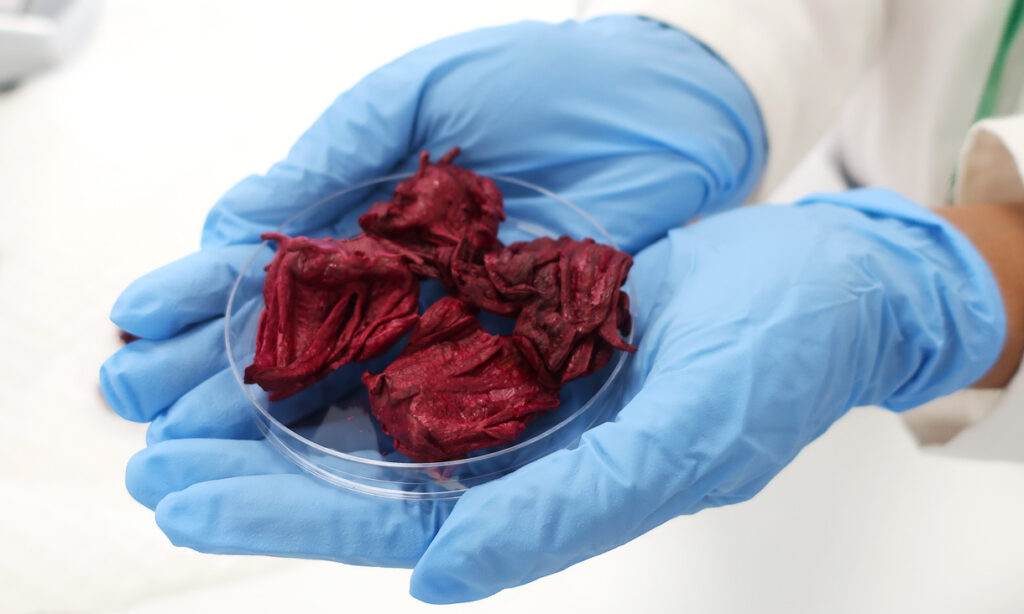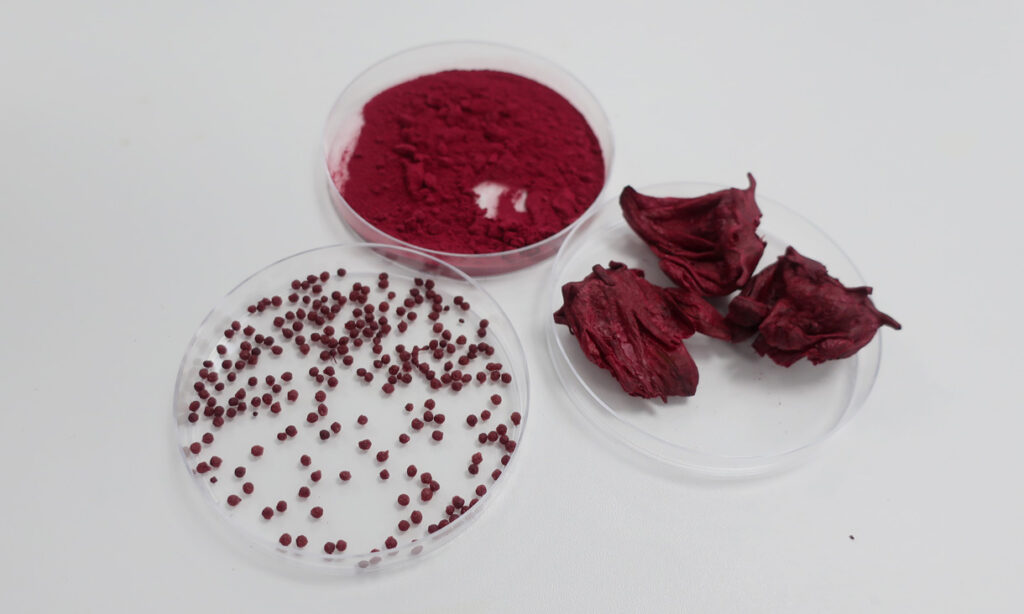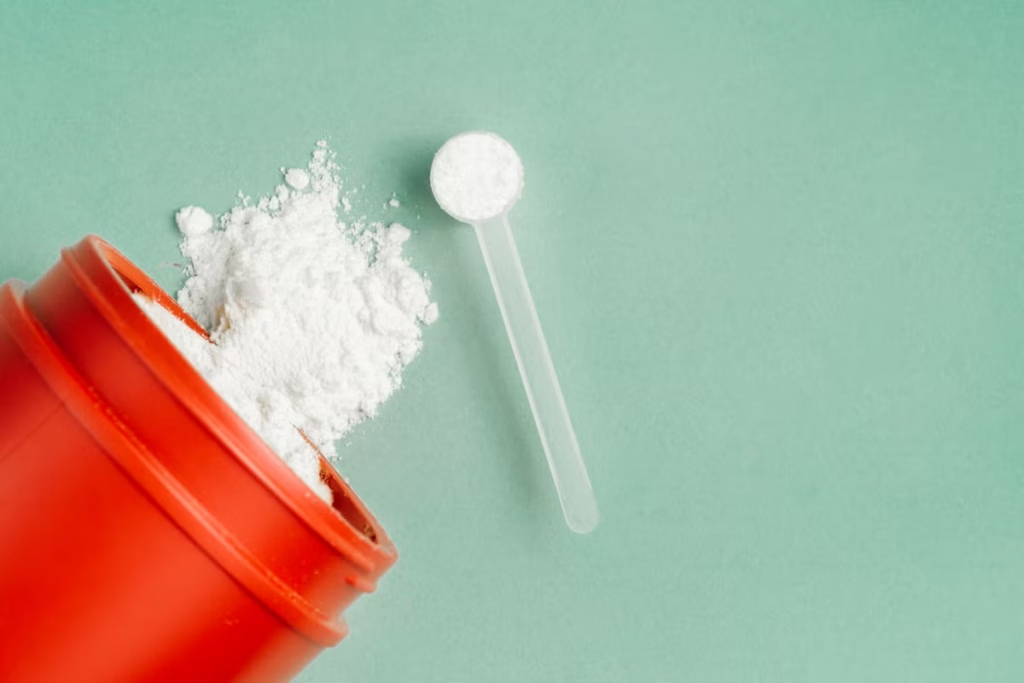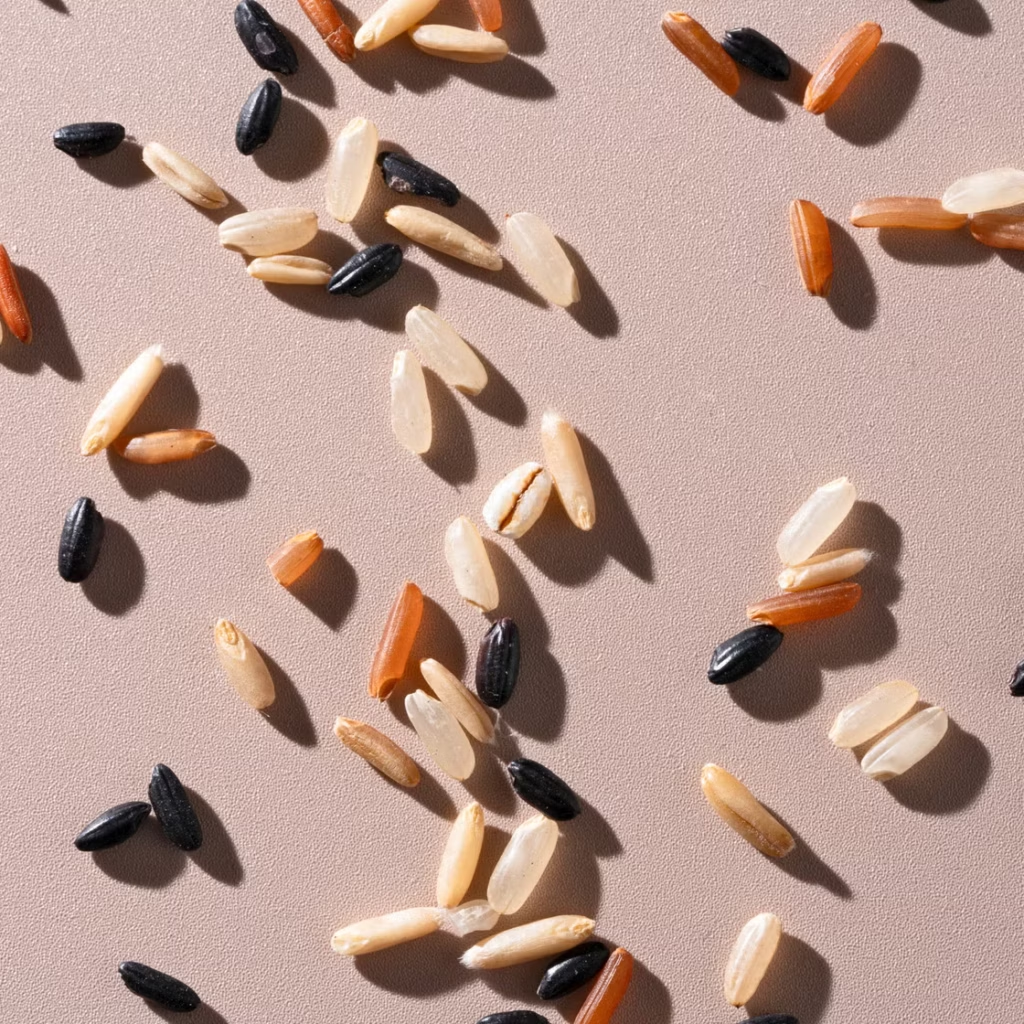When you’re trying to lose weight, anything that can provide a leg-up in a healthy, sustainable way is a bonus, and that may just be what’s on offer thanks to new research around the humble roselle plant.
A research study conducted at RMIT, led by PhD candidate Manisha Singh, has found that antioxidants in the vibrant red plant have anti-obesity properties that could help in food alternatives to current weight management medications.
Antioxidant compounds called polyphenols in the roselle have similar digestive enzyme-inhibiting properties as some obesity management medications, inhibiting a digestive enzyme called lipase. Lipase helps break down fats into small fractions so the body absorbs them through the intestine, and the excess fats are turned into fat cells. But when the polyphenols inhibit the lipase enzyme, the fat cannot be absorbed so it passes through the colon as waste.

This discovery could be a game changer for anyone taking medication as part of an obesity management plan. How so? Because, while they are effective, many of the medications used to treat obesity can also have negative side effects on organs such as the kidneys and liver, and may cause high blood pressure.
However, “Because these polyphenolic compounds [found in the roselle] are plant-derived and can be consumed, there should be fewer or no side effects,” Singh explains.
Roselle in the real world
Now they know about the plant’s superpowers, the RMIT team are looking into how they might be made readily available – and it looks like food is the answer. “The phenolic extracts from the roselle could help create a health-food product that is [not only] effective in interfering with the formation of fat cells, but also bypass[es] the bad side effects of some medications,” adds Professor Benu Adhikari, from RMIT’s Food Research and Innovation Centre, who supervised the study.
The team are now diving into how they can encapsulate the phenolic extracts for use in health-food products, and believe the roselle – which is native to Africa – might just become a big player in the Australian health food industry.

“Australia has the perfect climate for farming the roselle,” says Adhikari. “The plant is hardy, disease resistant and it
doesn’t need a lot of space or water to grow,” making it ideal for our outback climate.
“Phenolic extracts oxidise easily, so not only does encapsulation extend its shelf life, but it lets us control
how they are released and absorbed by the body,” says Adhikari. “If we don’t encapsulate the extract, it could break down in the stomach before we can reap its benefits.”
Currently, the researchers say the extracts could be turned into little beads and used to make a refreshing drink – and if you’ve ever tasted the roselle’s alien-esque calyces (the fleshy red ‘cup’ containing the plant’s seeds), you’ll know what a delicious prospect this is.















